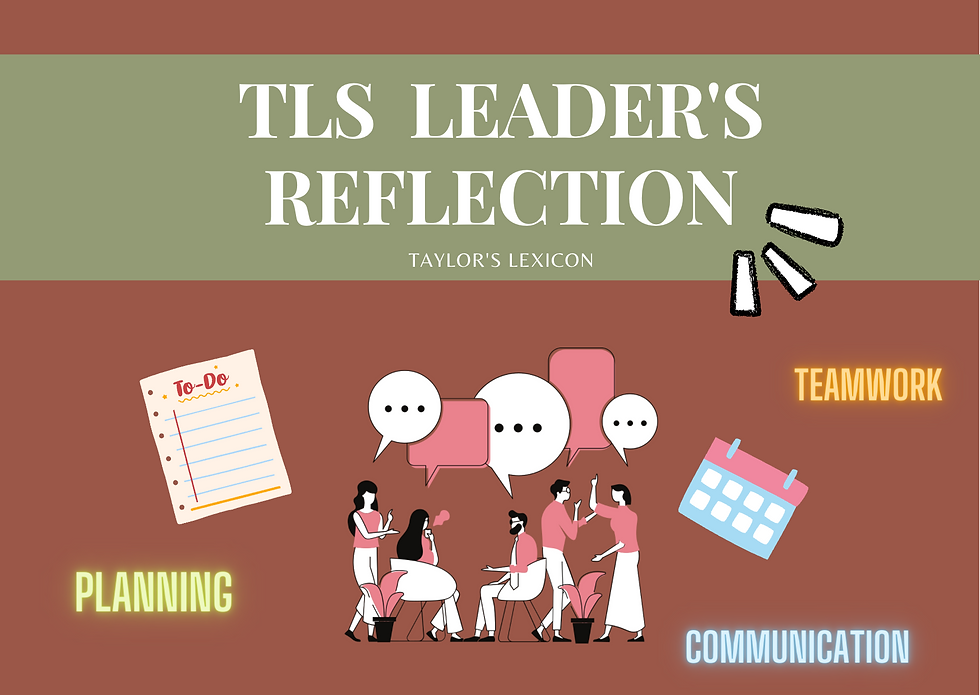Re-examining The Exam System
- Lexicon Editorial Board

- May 8, 2021
- 5 min read
Are exams the best system?
For many, exams are the worst time of the year. Stress, sleepless nights, long hours, headache, heartache, the list goes on. Yet, such has served the passage of time. Is the system of study, exam, results and repeat truly the best, or is it overdue a rethink?
The good:
Let’s start with the positives of exams. Despite what many have said, or what many think, there are reasons as to why it has remained a hallmark of the education system for years yonder. For instance, it is not entirely feasible to implement a non-standardised method of testing/assessment. There are, sadly, very few of us who can make it into the glitz and glamour of world-renowned universities, even less so who can afford the prices. Yet, a non-exam system of grading would, to a certain extent, hinge on the reputation and/or credibility of said university, in order for a grade given to be substantiated. Practically, employers would then be faced with an uphill battle in the gaging of educational performance. This would further worsen the disparity amongst institutions of tertiary education, creating an even more exclusive and inaccessible system.
In addition, it is clear that exams are the best method for the avoidance of bias or favouritism due to their standardised nature. It is simply the case that, as creatures of thought, one may find preference to certain individuals for any number of reasons. Right or wrong, these are considerations that one must contend with. As such, it is clearly the case that a standardised system, which provides, for the most part, an even playing field for all who participate, and where disparities in grades can be explained with differing levels of effort given, would be preferable.
These preferences for an exam-based system appear to be backed up by scientific evidence. For example, laboratory studies have shown that exams promote subsequent learning and retention of materials. In addition, pressure can prevent procrastination. When the stakes are high, and the pressure is on, students may not only work harder to achieve their desired grades but also pay more attention in the classroom. Alas, even for the most diehard anti-exam enthusiasts, there is no escaping its encompassing clutches. Certain qualifications, such as the CLP exam, are simply carried out via an exam.
Another popular argument put forth is that exams are designed to train students for their chosen career path. Culinary students often sit for standardised, written exams, testing their knowledge of technique as well as practical exams to test their skill and abilities. While this logic does track, for the vast number of other fields of study, the same cannot be said to apply. Take, for instance, law school exams. The closest similarity that our written exams have with working in the legal field is that they both tend to be high-pressure situations. Other than that, depending on the nature of the questions within the exam paper, the written exams could serve to test our knowledge, memorisation skills or reasoning skills. The new open book system as imposed by the measures necessitated by the pandemic is arguably a far more effective system. Theoretically, taking the pressure of memorisation away from students would allow them more time to explore the subject matter, think critically and focus on the development of their ideas. However, is the issue then with the system of examinations, and not its content?
The bad:
In a world of over 7 billion, we are bound to have differences. Yet, the system of exams seems to give priority to the select few who operate best under its structure. Certain individuals may find its high-stress nature to be incompatible with their specific mannerisms of operation, or that its emphasis on memorisation badly suits one’s skills in research and analysis. These considerations do not even begin to account for the swaths of students whose mental health has deteriorated as a result. Burn-out is all too common in the pursuit of a university degree, even more so within the domain of law, and the exam-based system may be key within this issue.
There too are other issues in this quasi-universal exam system. Pivoting back to the preliminary point, of whether the implementation of a non-exam system would be feasible, while such is certainly a concern, this issue is not absent within the current status quo. For example, unlike completely standardised exams such as UPSR, or A-levels, universities are not conducted on such a universal plain. There are stark differences between each university, be it certain universities conducting open-book exams, and others utilising closed-book exams. This point may be further reinforced by the way universities have conducted their examinations during COVID-19. Particular universities in the UK have conducted their exams over a few days to a week, whilst others may operate theirs over a few solemn hours.
Furthermore, within the legal domain particularly, closed-book exams are simply unrealistic. The emphasis placed on memorisation and regurgitation is not nearly as important within the actual practice, where skills such as analysis, comprehension and other soft skills are far more valuable. To expand on this point in greater detail, it may be said that exams are too “target-orientated”, creating “test-fuelled production lines” filled with stress, anxiety and a lack of creativity. Within subjects such as law, which is usually conducted over 3 years, it is impossible to learn each and every area of it, even less possible to get a firm understanding of its intricacies. Thus, shouldn’t the emphasis be placed on the equipment of skills needed for legal practice, instead of rigorous yet incomplete memorisation of various case law?
The maybe:
Whilst it is certainly the case that the exam-based system has issues, such is undeniable, it is not too clear whether a non-exam system would be of benefit. The system of exams brings with it consistency, uniformity and a vast many other positives, yet sacrifices creativity and, to a certain extent analytical thinking.
The system implemented by Taylor’s law school, such being a combination of coursework and exams, strikes a rather good balance between the positives and negatives. For instance, the assignments and coursework allow students to engage in greater research and creative thinking, with a vast ocean of materials available at their disposal. More often than not, students are given ample time, at least 4 weeks, to work on their assignments, taking away the pressure-cooker nature of exams. Additionally, students are given assignments that run concurrently with one another, teaching students to diversify and hone their ability to work on multiple things at one time. Thus, a system much like the one we abide by does, to some extent, bridge the gap between the good and bad of exams.
It may just be the case that exams are bad but not as bad as the alternatives. In any event, it seems that right or wrong, such systems won’t be going away any time soon.



Comments